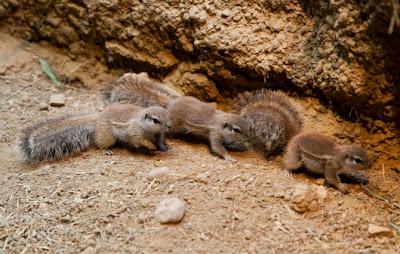Altruism is a fascinating topic to me, so I wanted to make this final post about care and compassion. How does this tie into anthropology? Well let me tell you...
My main question is what is the payoff of putting energetic, economic and material investment in the dead and dying? You would think that this method of use of resources would put a population at a disadvantage, thereby limiting their reproduction. If this is true, eventually those cultures with the most lavish burials would not be reproducing frequently or passing on their genes. It's a bit of a leap, but it could be argued that natural selection should select against groups who invest in their dead and dying. So why hasn't it? Humans have unarguably evolved the skills and behaviour to care for the dying, and invest time and energy in the dead. Where did this originate from? Is it solely human? I believe that the root of burial practices must have come from engrained altruistic tendencies, and I am certain that it is not only humans who behave altruistically.
Let's start with Neanderthals. The remains of an old, decrepit male Neanderthal were found at La Chapelle-aux-Saints. The assumption is that even though he was no longer useful to society, this man lived to quite a ripe age. Presumably, he did this by being cared for.
Chimpanzees have been known to handle death in a startlingly human way. After the death of their infants, many mothers will carry around the dead body of their child. This is quite amazing, I think, because it doesn't make perfect evolutionary sense. What advantage would this provide? The only thing that I can think of is that it shows a strong connection to the offspring and an intrinsic sense of motherhood, both which would be advantageous in an evolutionary sense. For some heartbreaking but truly astonishing videos, visit this website.
Additionally, many types of squirrels, for example, display altruism. This ultimately contributes to their fitness, increasing it and thus allowing them to pass on altruistic genes. Many, many other animals show altruism within their social groups.
So what is my point? My point is that, as seen in many vertebrate species, altruism exists in humans as and may be a powerful force helping to drive evolution. I would like to argue that compassion is innate. Acting altruistically must be beneficial, because it has been selected for.
I think that altruism is at the base of burial practices and the use of grave goods. Because so many diverse human cultures expend resources into burials, I would argue that burial practices and grave goods increase fitness. Perhaps the treatment of the dead promotes peace or community bonding, which reduces conflict therefore increasing fitness. It's a bit of a wild guess, but I think there could be some real truth to it!
Grave Goods. Source






No comments:
Post a Comment